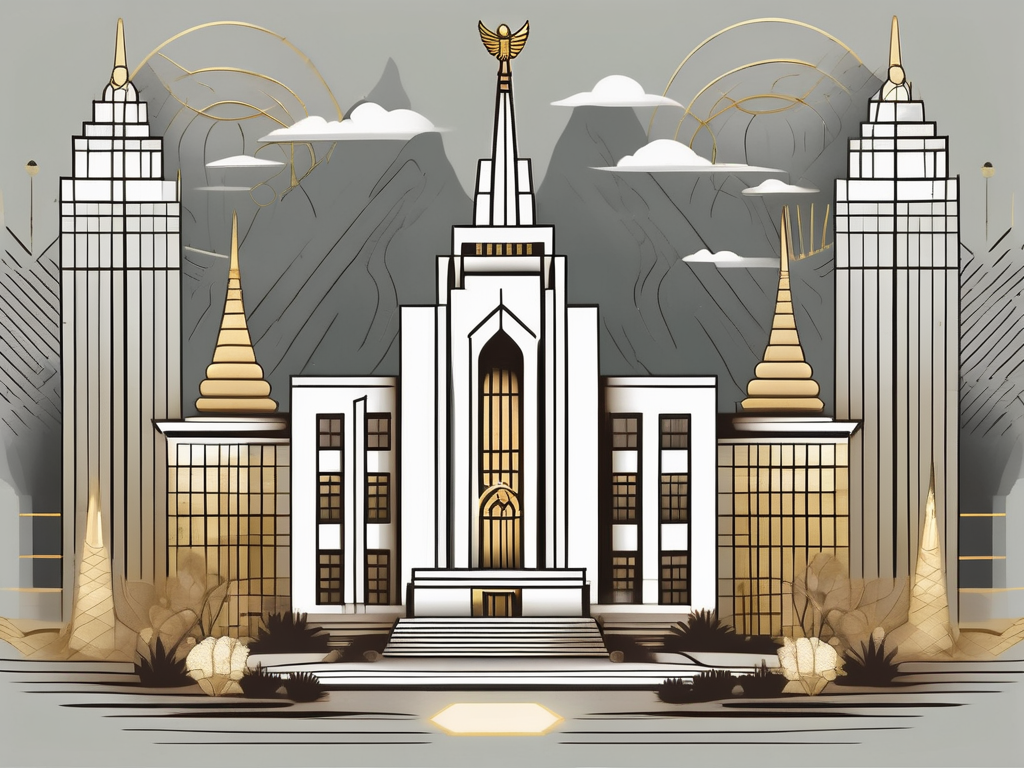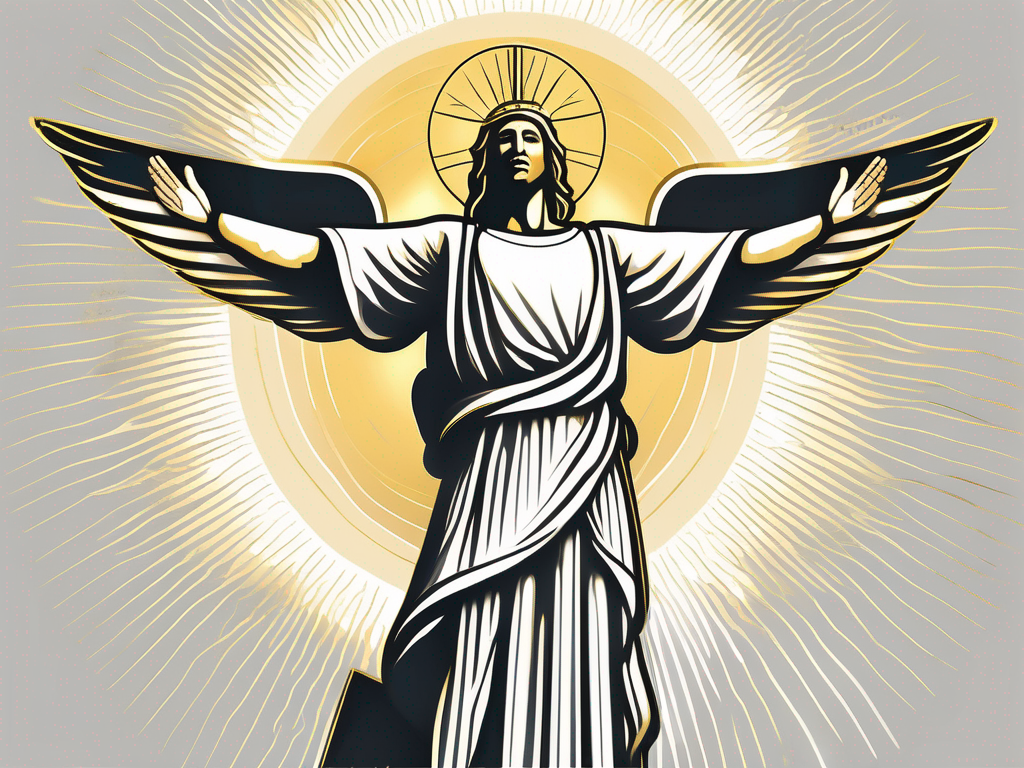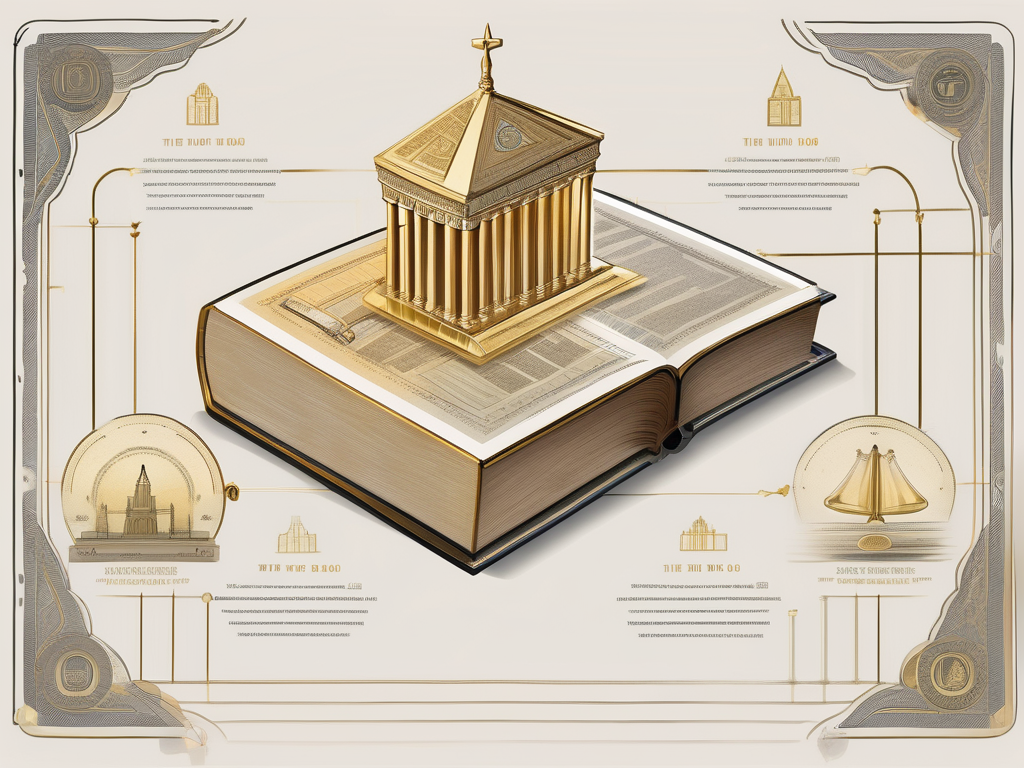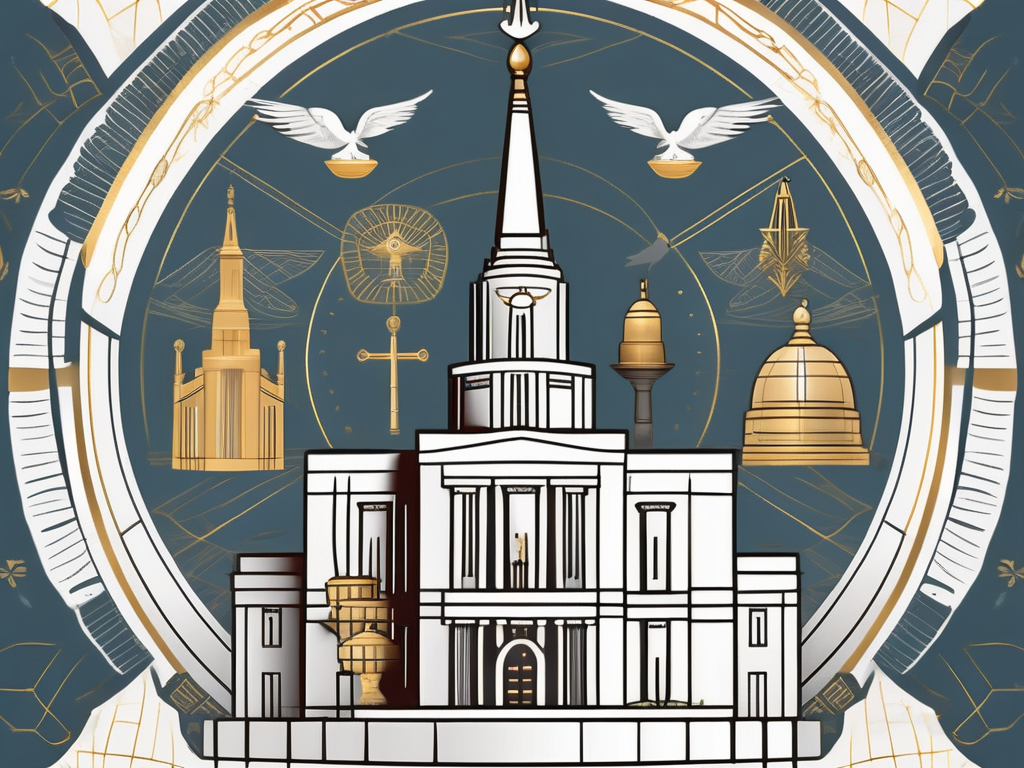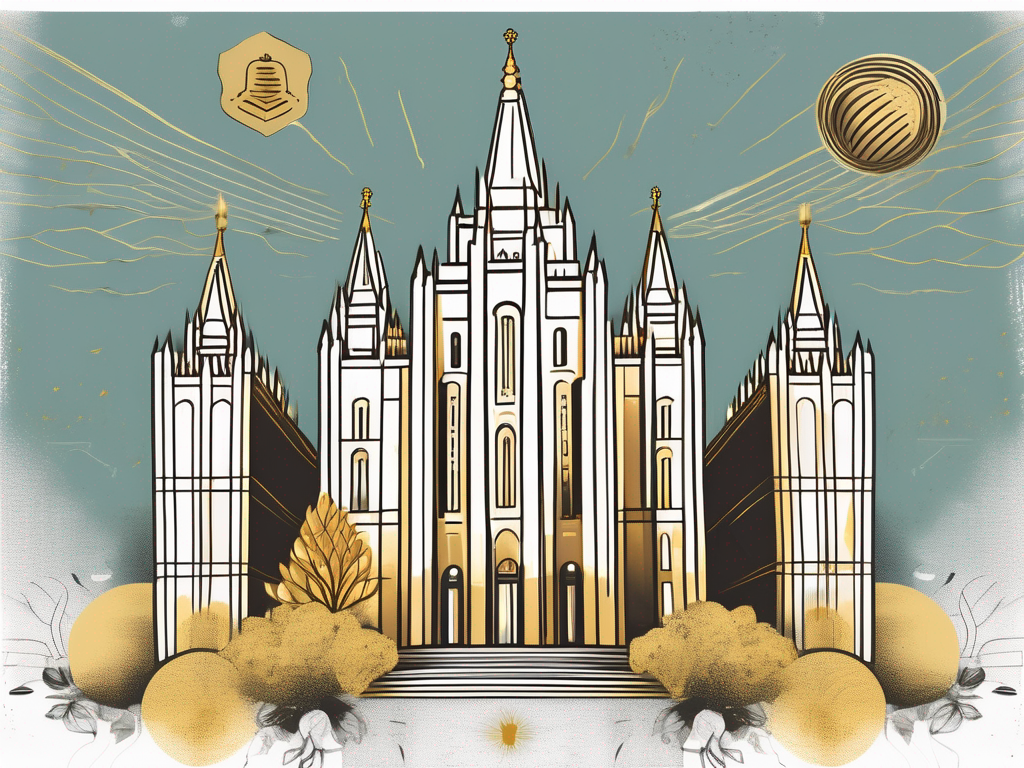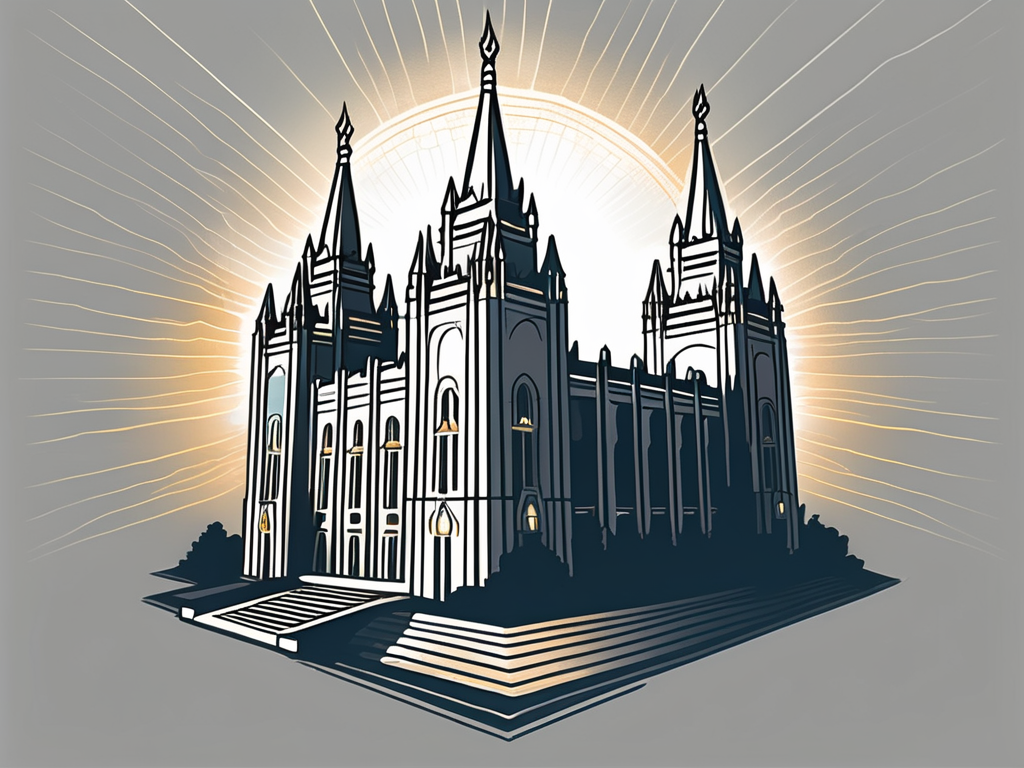If you’re curious about the beliefs and practices of Mormons, you’ve come to the right place. In this article, we’ll explore ten fascinating Mormon facts that will give you a better understanding of this unique religion.
Understanding the Basics of Mormonism
Mormonism, otherwise known as The Church of Jesus Christ of Latter-day Saints, was founded by Joseph Smith in the early 19th century. It has since become one of the fastest-growing religions in the world, with millions of members worldwide.
The origins of Mormonism are deeply rooted in the life and experiences of Joseph Smith. Born in Vermont in 1805, Smith grew up in a time of religious fervor and spiritual seeking. As a young man, he was troubled by the conflicting beliefs and denominations around him, leading him to embark on a personal quest for truth and understanding.
According to Smith’s account, in 1820, at the age of 14, he experienced a profound vision in which he saw God the Father and Jesus Christ. This vision marked the beginning of a series of divine manifestations and revelations that would shape the course of his life and the future of Mormonism.
The Origin and History of Mormonism
The history of Mormonism truly took off in 1830 when Joseph Smith published the Book of Mormon, which he claimed to have translated from ancient golden plates. According to Smith, these plates were buried in a hillside in upstate New York and were written by ancient prophets who had lived on the American continent.
The Book of Mormon tells the story of these ancient peoples, their interactions with God, and their eventual encounter with Jesus Christ after his resurrection. For Mormons, this sacred text is not only a historical account but also a spiritual guide and a testament of Jesus Christ’s divinity.
With the publication of the Book of Mormon, Smith formally organized the Church of Christ, later renamed The Church of Jesus Christ of Latter-day Saints. The early years of the church were marked by both growth and adversity. Smith and his followers faced persecution and hostility from those who viewed their beliefs as unconventional and threatening to established religious institutions.
Despite these challenges, Mormonism continued to gain followers and expand its influence. Smith’s leadership and charisma played a significant role in attracting people to the faith, as did the message of restoration and the promise of a direct connection to God.
Key Beliefs and Practices of Mormons
Central to Mormon belief is the importance of family and the eternal nature of human relationships. Mormons believe in the concept of eternal marriage, where couples can be sealed together for time and all eternity, ensuring that their familial bonds continue beyond death.
Living a moral and virtuous life is a fundamental principle for Mormons. They adhere to a strict code of conduct, which includes abstaining from alcohol, tobacco, and illicit drugs. They also strive to maintain modesty in dress and language, as well as practicing honesty, integrity, and kindness in their interactions with others.
Worship and fellowship are essential aspects of Mormonism. Mormons gather together regularly for Sunday worship services, where they partake in sacraments, sing hymns, and listen to sermons. They also have a strong sense of community and often engage in activities such as service projects, social events, and educational programs.
One unique aspect of Mormonism is its belief in continuing divine revelation. Mormons see themselves as a living church, guided by modern-day prophets who receive ongoing revelations and insights from God. These prophets, known as the President of The Church of Jesus Christ of Latter-day Saints and his counselors, provide guidance and direction for the faith.
Through their emphasis on family, faith, and service, Mormons seek to build a strong relationship with God and strive for personal growth and spiritual development. Their commitment to living according to their beliefs and their dedication to community and service have contributed to the growth and influence of Mormonism worldwide.
The Book of Mormon: More Than Just a Religious Text
At the heart of Mormonism is the Book of Mormon, which Mormons consider to be a sacred text on par with the Bible. It tells the story of ancient prophets in the American continents and their interactions with Jesus Christ.
The Book of Mormon is not just a religious text, but a historical and cultural treasure that offers unique insights into the ancient civilizations of the Americas. It provides a fascinating glimpse into the lives and struggles of these ancient peoples, their customs, and their spiritual beliefs.
According to Mormon belief, the Book of Mormon was translated from golden plates by Joseph Smith. The plates were said to be written by ancient prophets who lived in the Americas before the time of Christ. These prophets recorded their experiences, visions, and teachings on these plates, which were then passed down through generations until they were discovered by Joseph Smith.
The process of translating the Book of Mormon was a remarkable feat in itself. Joseph Smith claimed to have used a seer stone, called the Urim and Thummim, to aid him in deciphering the ancient language inscribed on the plates. This translation process took several years and was a labor of love for Joseph Smith, who saw it as his divine calling to bring forth this sacred text.
Mormons believe that the Book of Mormon is an additional witness to the divinity of Jesus Christ and provides important teachings and doctrines not found in the Bible alone. It complements the Bible and enhances the understanding of God’s plan for His children.
The Creation and Significance of the Book of Mormon
The creation of the Book of Mormon is a testament to the faith and dedication of Joseph Smith. Despite facing numerous challenges and opposition, he remained steadfast in his belief that the plates contained a divine message for the world.
The significance of the Book of Mormon lies in its role as a guiding light for Mormons. It serves as a source of inspiration, comfort, and guidance in their daily lives. Its teachings provide a moral compass and offer answers to life’s most profound questions.
Furthermore, the Book of Mormon has played a crucial role in the growth and development of the Mormon faith. It has served as a unifying force, bringing together individuals from diverse backgrounds and cultures under a common belief system.
Unique Teachings from the Book of Mormon
One of the key teachings from the Book of Mormon is the importance of faith in Jesus Christ. It emphasizes the need for individuals to have a personal relationship with Him and strive to live according to His teachings. The Book of Mormon teaches that through faith, individuals can find hope, healing, and redemption.
In addition to faith, the Book of Mormon also teaches the principles of repentance, baptism, and the gift of the Holy Ghost. It emphasizes the transformative power of repentance and the importance of baptism as a symbol of one’s commitment to follow Christ. The gift of the Holy Ghost is seen as a source of divine guidance and comfort in navigating life’s challenges.
Moreover, the Book of Mormon contains profound teachings on charity, service, and the importance of loving one’s neighbor. It encourages individuals to reach out to those in need, to be kind and compassionate, and to strive for unity and peace.
Overall, the Book of Mormon is a rich and multifaceted text that offers much more than just religious teachings. It is a testament to the human spirit, a record of ancient civilizations, and a source of inspiration and guidance for millions of people around the world.
The Role of Prophets in Mormonism
In Mormonism, prophets play a crucial role in guiding the faith and delivering the word of God to the people. They are seen as the mouthpieces of God, chosen to receive divine revelation and communicate it to the world.
One of the fundamental beliefs in Mormonism is the concept of continuing revelation. This means that Mormons believe that God continues to reveal His will and guidance to the world through modern prophets. This belief is rooted in the idea that God is actively involved in the affairs of His children and that His guidance is necessary to navigate the challenges of the present-day.
Continuing revelation is a dynamic concept that allows Mormons to receive guidance tailored to their specific needs. It acknowledges that the world is constantly changing, and therefore, the word of God needs to be relevant and applicable to the circumstances of the time. This belief provides Mormons with a sense of comfort and reassurance, knowing that they can turn to modern-day prophets for guidance in a rapidly evolving world.
The Influence of Modern-Day Prophets
Mormon prophets, such as Joseph Smith and current church president Russell M. Nelson, are highly revered and respected leaders within the Mormon community. They are seen as spiritual guides, tasked with providing direction and counsel to the church and its members.
The teachings and pronouncements of modern-day prophets are considered by Mormons to be scripture. These teachings are seen as the word of God and are studied, pondered, and applied in the lives of individuals and families. The words of the prophets are seen as a source of inspiration, comfort, and guidance, helping Mormons navigate the complexities of life.
Through their prophetic role, modern-day prophets also serve as a unifying force within the Mormon community. Their teachings and leadership help to create a sense of unity and common purpose among members, fostering a strong sense of community and belonging.
Furthermore, prophets are not only seen as spiritual leaders but also as examples of righteous living. Mormons look to the lives of prophets as models of faith, integrity, and devotion. They strive to emulate their virtues and follow their teachings, seeking to align their lives with the principles and values espoused by these revered leaders.
In conclusion, prophets hold a central and revered position in Mormonism. They are seen as the conduits through which God communicates His will and guidance to His children. Their teachings and pronouncements are considered scripture, and their influence extends beyond spiritual matters, impacting the lives of individuals and the collective Mormon community.
The Mormon Concept of Afterlife
Mormons have a unique and distinct perspective on the afterlife, which offers hope and comfort to their followers. This belief system is deeply rooted in their understanding of God’s plan for his children and the eternal nature of the soul.
According to Mormon theology, life on earth is seen as a temporary state, a testing ground where individuals are given the opportunity to learn and grow. It is believed that after death, the soul continues to progress and move towards its ultimate destiny.
The Three Degrees of Glory
Mormons believe that after death, individuals will be assigned to one of three degrees of glory: the Celestial Kingdom, the Terrestrial Kingdom, or the Telestial Kingdom. These degrees differ in glory and are based on an individual’s faithfulness and adherence to Mormon teachings.
The Celestial Kingdom is considered the highest degree of glory and is reserved for those who have lived according to the principles of the gospel and have made covenants with God. It is believed to be a place of eternal joy and exaltation, where families can be together forever.
The Terrestrial Kingdom is the next degree of glory and is for those who lived honorable lives but did not fully embrace the gospel. It is described as a place of peace and beauty, where individuals can still experience happiness and progression.
The Telestial Kingdom is the lowest degree of glory and is for those who have chosen to reject the gospel and live in a state of disobedience. While it is considered a lesser degree of glory, it is still believed to be a place of mercy and opportunity for growth.
The Practice of Baptism for the Dead
Mormons believe in the practice of baptism for the dead, which involves performing baptisms on behalf of deceased individuals who did not have the opportunity to accept the gospel during their lifetime. This belief in proxy baptism allows Mormons to extend the blessings of salvation to their ancestors.
This practice is rooted in the belief that God is just and desires all of his children to have the opportunity to accept the gospel. By performing baptisms for the dead, Mormons believe they are providing a way for their ancestors to accept the gospel and progress in the afterlife.
Mormons view the practice of baptism for the dead as an act of love and service towards their ancestors. It is seen as a way to strengthen family bonds and ensure that all individuals have the chance to receive the blessings of salvation.
In order to perform baptisms for the dead, Mormons visit temples, which are considered sacred spaces where these ordinances can take place. These temples are seen as a bridge between heaven and earth, a place where individuals can connect with their ancestors and perform sacred rituals on their behalf.
Overall, the Mormon concept of afterlife is centered around the belief in eternal progression and the opportunity for all individuals to receive salvation. Through their unique beliefs and practices, Mormons find hope, comfort, and a sense of purpose in their understanding of the afterlife.
The Importance of Family in Mormonism
In Mormonism, family is considered central to God’s eternal plan.
The Eternal Nature of Families
Mormons believe that families can be sealed together for eternity, not just until death. This sealing ordinance, performed in Mormon temples, ensures that families can be reunited and continue their relationships in the afterlife.
Family Home Evening Tradition
Every Monday evening, Mormons set aside time for a special family gathering known as Family Home Evening. This tradition involves prayer, scripture study, activities, and quality time together, strengthening the bond between family members.
Now that you’ve learned these ten fascinating Mormon facts, you have a better understanding of the beliefs and practices of this vibrant religion. Whether you agree or disagree with their teachings, exploring different faiths can help foster greater tolerance and appreciation for the diversity of the human experience.
